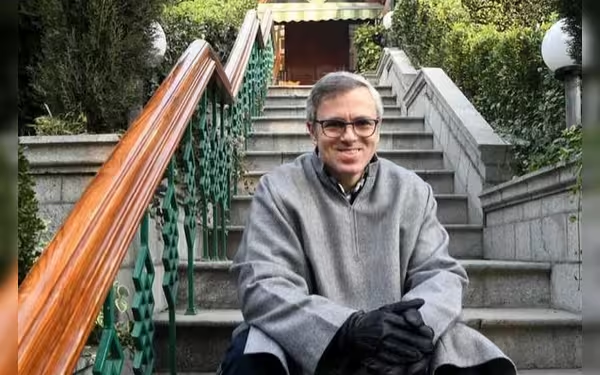Saturday, November 16, 2024 05:32 PM
Kashmir Elections Signal Shift in Political Landscape
- BJP faces defeat in Jammu and Kashmir elections.
- Omar Abdullah returns as a significant leader.
- Voter turnout indicates renewed hope for self-governance.
 Image Credits: asiatimes
Image Credits: asiatimesRecent elections in Jammu and Kashmir show a shift in political dynamics, with the BJP defeated and Omar Abdullah returning to leadership.
The recent local elections in Jammu and Kashmir mark a pivotal moment in the region's political landscape. These elections were the first to take place since the Indian government, led by Prime Minister Narendra Modi, controversially revoked the region's semi-autonomous status in 2019. This change had a profound impact on the people of Jammu and Kashmir, as it stripped away many of the rights and privileges they had enjoyed for decades. Furthermore, these elections were the first local elections in the Muslim-majority region since 2014, making them even more significant.
In this election, the people of Jammu and Kashmir had the opportunity to express their political preferences and restore some degree of self-rule, albeit partially, after five long years. The results revealed a surprising turn of events: the Bharatiya Janata Party (BJP), which has been a dominant force in Indian politics, faced a resounding defeat. The alliance between the Jammu and Kashmir National Conference (JKNC) and the Indian National Congress emerged victorious, winning 48 out of the 90 seats in the regional legislature. In contrast, the BJP managed to secure only 29 seats, primarily in the Hindu-majority Jammu region.
One of the notable outcomes of this election was the reinstatement of former Chief Minister Omar Abdullah as a leader. This was particularly surprising given that he had lost his bid for a seat in the Lok Sabha, the lower house of parliament, just a few months prior. His return to leadership signifies a shift in the political dynamics of the region, as the electorate appears to be seeking a change from the BJP's policies.
Historically, elections in Jammu and Kashmir have been marred by boycotts and low voter turnout, largely due to the public's mistrust of the government. However, this election seems to have rekindled hope among the people, as they actively participated in the democratic process. The results indicate a desire for a more representative government that aligns with the aspirations of the local population.
While the recent elections in Jammu and Kashmir have restored a sense of hope and self-governance, it is essential to recognize that Prime Minister Modi and his government still hold significant power. The road ahead will require careful navigation, as the people of Jammu and Kashmir seek to reclaim their rights and ensure that their voices are heard in the political arena. The outcome of these elections serves as a reminder that democracy is a continuous journey, and the people of this region are determined to shape their own future.













